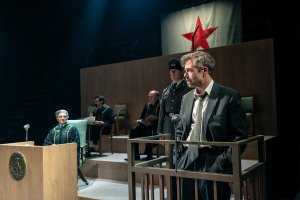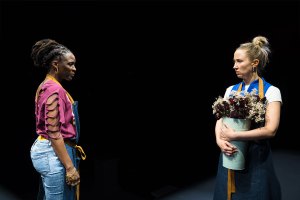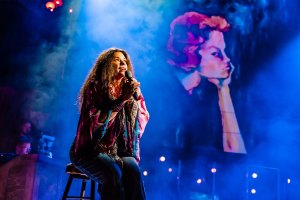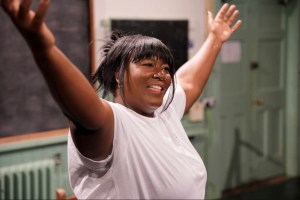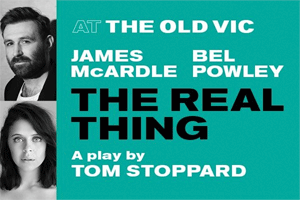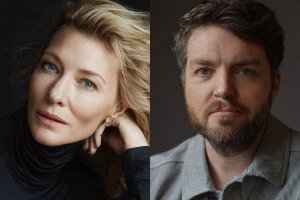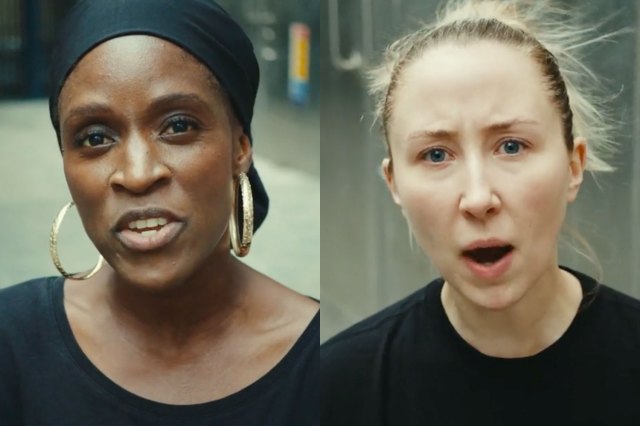Sweeney Todd (Welsh National Opera – tour)
Serious audibility issues compromise WNO’s co-production with West Yorkshire Playhouse
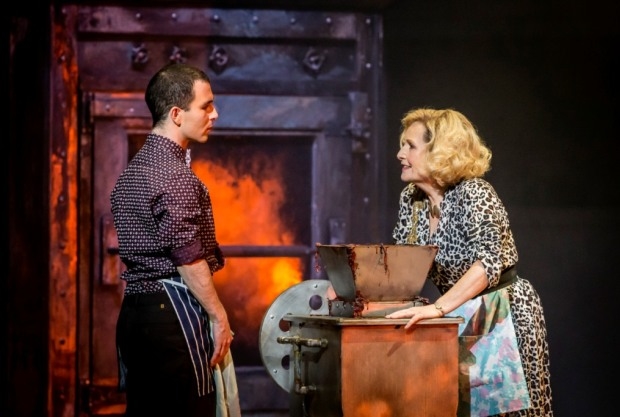
© Johan Persson
The sound from onstage is another matter, and I’ll preface what follows by reporting that every single conversation I overheard at the interval contained a complaint about audibility. Not just one or two: all of them. WNO’s catastrophic sound system (tellingly, no one is credited for it in the programme, which merely states that "amplification is used, in keeping with musical theatre practice") all but decimates its production.
When choosing to stage a show that was written in, and for, today’s musical theatre era of amplified sound, you cannot then treat it as though it were a traditional opera. Stephen Sondheim‘s songs – and Jonathan Tunick‘s orchestration of them – require a detailed, professional sound design, because they were written that way. Here we get no more than a few mood mics designed to help with internal balance. It’s not enough.
Matters are not helped by the casting of David Arnsperger in the title role. He’s a German musicals specialist but a stolid presence who brings out little of the rich subtext in Hugh Wheeler and Christopher Bond’s irresistible book. And with microphone levels set this low you have to strain to hear him.
Janis Kelly, one of Britain’s only genuine crossover opera singers (she was unforgettable in the RSC/Opera North Show Boat way back when) fares better as Mrs Lovett, and her reaction to the mulch that Todd spits into her hand is one of the evening’s few laugh-out-loud moments. But although Kelly can roar with a mean chest voice she’s reluctant to use it when singing, so Sondheim’s brasher passages end up sounding anaemic.
'Classy supporting turns'
James Brining‘s modernish production (1970s, I’d say) starts off in a grim expressionistic asylum, all cardboard-lined floors and cargo containers, and it’s the inmates who enact the show – which means that when the plot reaches Jonas Fogg’s Bedlam it all gets a bit meta. There are echoes of Wedekind and Büchner in the visual concept, reasonably enough, and for the most part it works. The muscle-power that Todd exerts in his slayings is quite the most gruesome I’ve seen.
Attention to dramatic detail is less sure-footed, however. Dialogue beats are regularly smudged so the pace drops when the singing stops; Sondheim and Tunick’s carefully timed use of the chime tree when Todd first picks up his blade is muffed; Jamie Muscato as Anthony sings pleasantly but the ends of his lines trail away during spoken dialogue, and the second-act opener "God, That’s Good" is subjected to some weirdly inappropriate choreography that would be a better fit for "Food, Glorious Food".
Happily, in an otherwise disappointing evening some classy supporting turns save the day. Soraya Mafi is an affecting Johanna and Charlotte Page a bold-as-you-like Beggar Woman, while two of our finest opera singers, Steven Page and Aled Hall, are dynamically paired as the evil Judge Turpin and his oleaginous henchman Beadle Bamford. Paul Charles Clarke delivers the goods as the mountebank barber Pirelli, but it’s the Tobias of George Ure, a true musical theatre voice, who earns the loudest applause. And you can hear every word.
WNO's tour of Sweeney Todd continues on to Bristol, Llandudno, Oxford, Liverpool and Birmingham before returning to the Wales Millennium Centre in Cardiff where it runs until 29 November.




